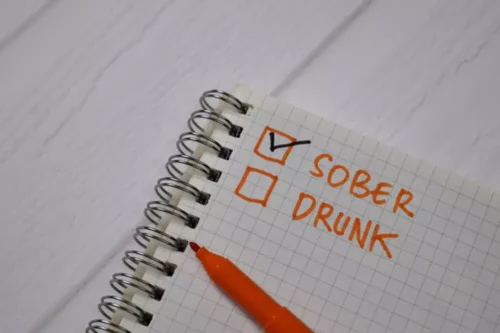
The main management for severe symptoms is long-acting benzodiazepines — typically IV diazepam or IV lorazepam. It’s difficult to predict who will and who won’t experience alcohol withdrawal — and how severe it will be. When you stop consuming alcohol after prolonged, heavy use, your CNS can’t respond or regulate alcoohol is better than drugs itself fast enough. In addition to the FDA approved medications, there are many other medications available. These agents include Fluoxetine, Duloxetine, Tiagabine, Levitriacetam, Gabapentin, Pregabalin, Sertraline, Citalopram, Ritanserin, Aripiprazole, Ondansetron, Quetiapine, Nalmefene and Topiramate.
- Carbamazepine was found superior to benzodiazepines in prevention of rebound withdrawal symptoms and reducing post-treatment alcohol consumption, especially in patients who had multiple repeated withdrawals [59].
- Schematic diagram showing drugs, hormones and their receptors in the brain inhibiting alcohol intake.
- However, many studies have suggested the antidepressant effects of ARI in animal model and in humans.
- Autonomic and psychomotor dysfunction often characterize the withdrawal symptoms.
In the Next Few Weeks
Research shows people who have a supportive social network are more likely to remain alcohol-free after withdrawal. For people at low risk of complications, an office visit to your primary care provider, along with at-home monitoring and virtual office visits, may suffice. People at high risk of complications should enter a short-term in-patient detox program. Individuals should be prepared to be uncomfortable during this period and have medical help available if needed. This is the period in which delirium tremens is most likely to occur, which requires immediate medical attention. Over time, however, the body builds a tolerance to alcohol, and a person may have to drink more and more to get the same feeling.
Health Insurance Providers That May Cover Addiction Treatment
- Compared with placebo, gabapentin, 1800 mg, increased the relative benefits of complete abstinence from heavy drinking (Mason et al., 2014).
- Medications such as SSRI and SNRI inhibitors, buspirone, benzodiazepines, diphenhydramine, propranolol, tamoxifen, prazosin, doxazosin, that help to block the stress-induced anxiety may also reduce alcohol consumption.
- Gabapentin was as effective as lorazepam in a randomized, double blind controlled study on 46 in-patients with alcohol withdrawal in the treatment of acute mild to moderate AWS [65].
- Historically, several mechanisms have been suggested to play a role in the development and etiology of AWS.
- At the same time, endogenous GABA is downregulated.[3] Thus, when alcohol is withdrawn, a relative deficit of GABA may occur and simultaneous excess in glutamate, resulting in the excitatory symptoms seen in alcohol withdrawal syndrome.
- Alcohol withdrawal refers to the physical and mental effects a person experiences after stopping prolonged and heavy alcohol use.
When the alcohol level suddenly drops, your brain stays in this keyed up state. Over time, your central nervous system adjusts to having alcohol around all the time. Your body works hard to keep your brain in a more awake state and to keep your nerves talking to one another. Many involve a combination of group psychotherapy (talk therapy) and medications. It’s important to be honest about your alcohol use — and any other substance use — so your provider can give you the best care. When you drink, try to have a meal or snack before having a cocktail or have a glass of wine with a meal, which will slow absorption of alcohol, Weaver says.

Medical Professionals
Many of these drugs and medicines are known to exhibit some deleterious side effects or are only effective in some conditions. The currently used FDA approved drugs include Disulfiram, Naltrexone, and Acamprosate. These drugs were also approved by different regulatory https://ecosoberhouse.com/article/how-alcohol-affects-your-kidneys/ agencies in many countries and have been used to treat AUDs for the past few decades with variable success rates. Improved medications for the treatment of binge, chronic alcohol drinking and alcohol related socio-medical problems are greatly needed.
1. Questionnaires to detect alcohol use disorder

Benzodiazepines
- Alcohol potentiates GABA’s inhibitory effects on efferent neurons, thereby suppressing neuronal activity.
- Symptoms outside of the anticipated withdrawal period or resumption of alcohol use also warrants referral to an addiction specialist or inpatient treatment program.
- Reinforcing and motivational effects of ethanol were studied by using various doses of fenofibrate (Haile & Kosten, 2017).
- Preclinical evaluation of gabapentin shows sensitivity to moderate alcohol doses and alcohol self-administration in rats with history of moderate alcohol drinking.
Stage 3: Severe Withdrawal
